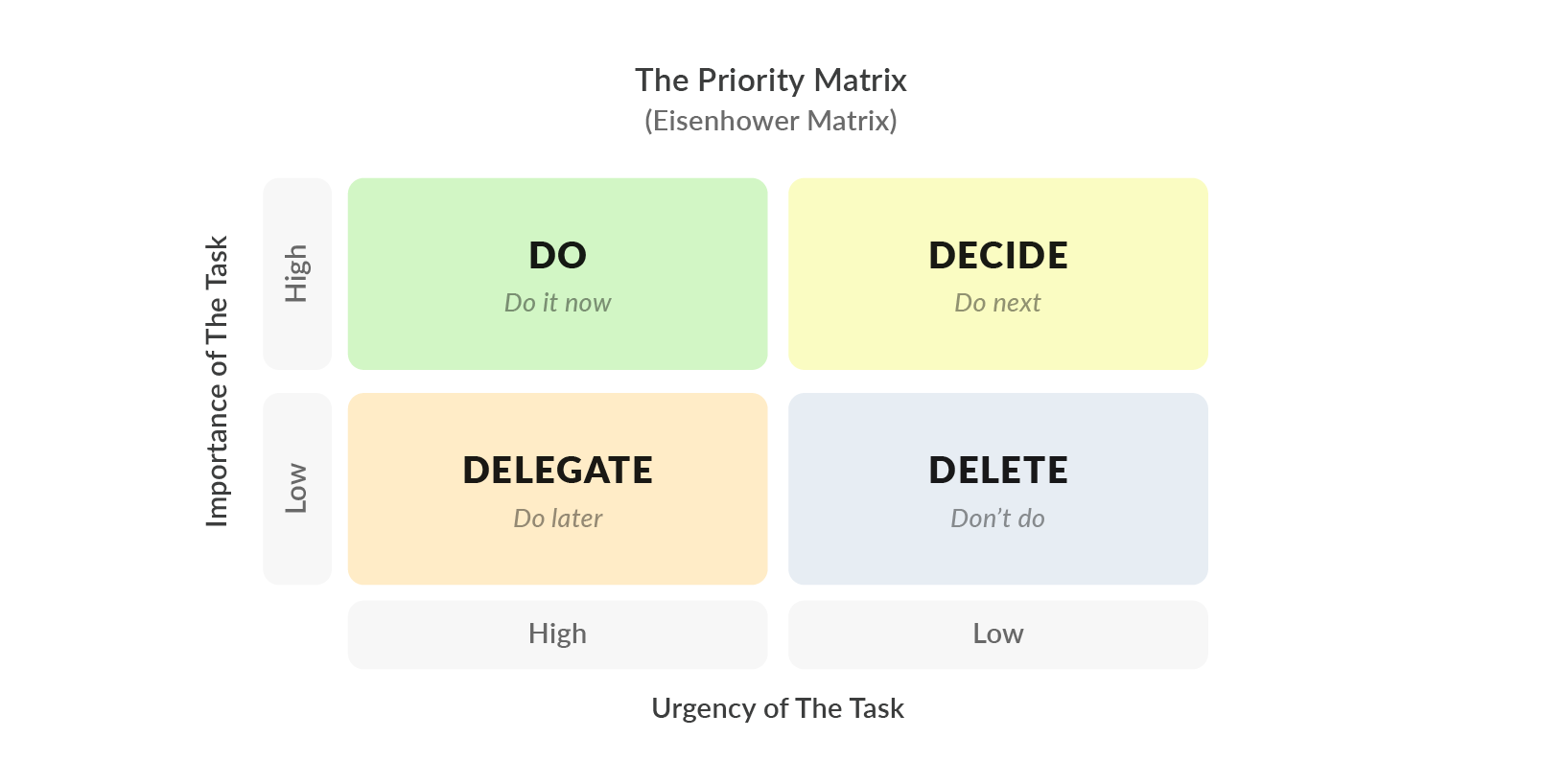productivity tips · Dec 16, 2020
You're Bad at Time Management, But We Can Help You Fix It!

Time management is a crucial factor in the success of a business and, in general, your career. It is the method of planning and balancing time between different activities and using it efficiently.
Amidst challenges and tight deadlines, time management can help you finish tasks in record periods without burning out those involved. These reasons make it imperative to master time management skills.
This blog is going to explore the meaning of time management skills, in detail, with examples to help you understand the concept. Additionally, it will tell you how to use an underrated weapon- work management software, to boost your productivity without much effort.
What are Time Management Skills?
Time management skills can be considered an umbrella term for a variety of skills that help you manage your time effectively and thus, increase your productivity. Listed below are some of the most crucial time management skills:
Organization
Careful organization of tasks helps you create and maintain a clear picture in your head of everything you need to complete within a timeline. Staying organized helps you navigate through tasks and situations effectively.
A well-organized plan generally involves breaking down large, intimidating goals into smaller, easy-to-achieve tasks, enabling as well as encouraging you to achieve your goals on time, if not faster. Some of the ways you can stay organized are by maintaining diligent notes and keeping your calendar up-to-date.
It's often said that your environment is a reflection of your mind, which is mostly true. So, keeping a tidy, organized environment can do wonders for your time management skills.
Prioritization
Objective assessment of your responsibilities and tasks with subsequent prioritization is key for successful time management.
There are many ways to prioritize your tasks. You can categorize them by deciding which ones are simple, and completing those first, followed by the longer, more involved, extensive tasks. On the other hand, you may decide to prioritize your goals per their urgency after selecting the most time-sensitive tasks. In addition to that, you can also choose what you need to accomplish as per a particular task's importance.
A combination of the three methods works perfectly well, if not better.

Goal-setting
The first step for effective time management is defining your goals and objectives with a plan for them, i.e., setting your goals. Goal-setting allows you to understand your aims clearly, and the things you need to prioritize in order to achieve it.
You can view your end goal as the light at the end of a tunnel. Setting both short and long-term targets can help change your business' efficiency positively.
Communication
Communication is key in every aspect of your life, including your business. Developing strong communication skills makes planning and flow of work smoother.
It helps you delegate with ease, allowing you to focus on the most important and relevant tasks. Needless to say, strong communication is an uber essential soft skill.
Planning
Planning is a fundamental time management skill. An elaborate record of meetings, tasks, and how you will go about the same helps you stick to your schedule. Efficient planning can easily skyrocket productivity.
Delegation
Managing multiple tasks simultaneously with more-than-satisfactory results is important. Delegate the tasks strategically and diligently to ensure all the goals are met well within deadlines.
Even if you are convinced that no one but you can perform a task as well as you, establish boundaries and practice delegating. This not only reduces your workload but also keeps you from burning out, which may cause problems further down the road.
Read more about how to use GTD Method to achieve highest productivity level.
Stress Management
Excellent time management is always important but staying attentive to your mental health is equally essential. It isn't always easy to navigate stress without somehow adding to it, leading to anxiety. Before it increases and causes serious problems, you have to find ways to minimize stress.
Find ways to include small breaks throughout the day, or treat yourself somehow for a task done well. On the surface, taking time to practice this may not seem as important as getting things done as fast as possible. However, managing stress is crucial for consistent productivity.
Read more about how to avoid burnout at work.
Flexibility
While it is vital to stick to a schedule as much as possible, you can't dismiss the possibility of unexpected hindrances. A task may take longer than you expect, or some unprecedented changes may occur.
Thus, keep a clear space in your schedule to adjust and incorporate last-minute changes whenever required.
Examples of Time Management
Swiftly adapting plans to changing circumstances.
Allotting time for certain tasks specifically.
Careful analysis of feasible processes and selecting the simplest method to accomplish a task.
Setting boundaries for duties and demands.
Tackling complex tasks when you have high energy and sharpest concentration.
Auditing the way time is spent.
Strictly avoiding procrastination.
Breaking down bigger goals into smaller tasks, one at a time.
Clearly defining break times.
Maintaining daily, weekly, and monthly "to-do" lists.
Creating schedules keeping all possible factors in mind.
Delegating tasks in a way that produces the best results for each job.
Religiously participating in stress-relieving activities during downtime for maximum energy while working.
Efficient meetings with strict time frames.
Strategic multitasking.
An organized, clean work area.
Grouping together similar tasks for reduced transition time.
Prioritizing duties, projects, etc., with respect to urgency and importance.
Reviewing performances in timely intervals and making changes accordingly.
Organizing digital as well as physical files for easier retrieval.
Sincere punctuality.
Using Work Management Software for Effective Time Management
The secret weapon mentioned earlier for effective time management is work management software. While people usually think of project management software for managing time and increasing productivity, it’s restricted to only projects.
Work management software, as defined by Gartner (World's top information technology research and advisory company), is a set of software products and services that apply workflow structure to the movement of information and the interaction of business and human worker processes that generate the information.
In simple words, it allows you to streamline work for maximum productivity of individuals and teams. A work management software allows the culmination of almost every point mentioned above for effective time management in a single platform.
Read more about 10 key benefits of using a work management software.
Ways in which you can use work management software to promote efficient time management are as follows:
- Noting down clearly defined goals.
- Organizing and scheduling timings for meetings and more, well in advance.
- Getting an overview of all the tasks with deadlines.
- Prioritizing each task.
- Recording and analyzing the time spent, the results, as well as the performances.
- Simplifying delegation.
- Easily communicating and coordinating with team members and colleagues.
Conclusion
Taking the time out to perfect each time management skill helps your productivity as well as promotes the success of your company. Work management software may not eliminate every problem, but it can drastically reduce them, saving precious time and making management easy.

